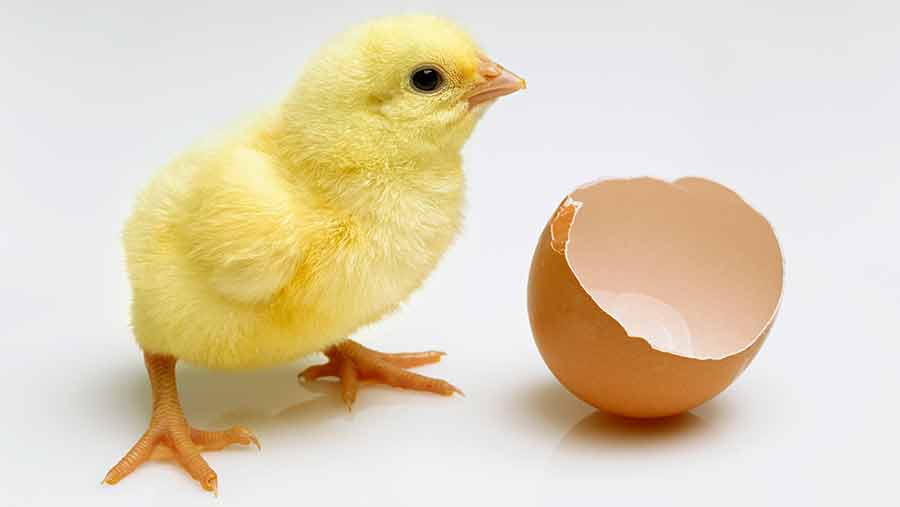Commercial poultry embryo sexing next year, researchers claim
 © Imagebroker/Rex/Shutterstock
© Imagebroker/Rex/Shutterstock German researchers have claimed a commercially viable test to determine embryo chick sexing will be available by early next year.
The method, developed by scientists at the Dresden University of Technology and the University of Leipzig, uses spectroscopy to determine the sex of a chicken egg.
It has the potential to remove the routine hatchery practice of killing day-old male chicks, which is increasingly arousing protests among consumer groups.
See also: Canadian egg farmers may have cracked embryo sexing
Pressure has been particularly strong in Germany, with the German Ministry of Agriculture providing £2.4m to make in-ovo chick sexing commercially viable. In April, the French Agriculture Minister Stephane Le Foll announced more than £3m of funding in the same area.
Dr Gerald Steiner, who is involved in the project, said the test involved using a laser beam to cut a small, circular hole at the top of the egg. Near-infrared spectroscopy is used to determine the sex of the embryo based on its DNA content, which is around 2% higher in male chicks.
“To the naked eye, we cannot see the difference between male and female embryos, but the computer can – if it’s programmed to do so,” said Dr Steiner.
The team is now able to sex each egg, with 95% accuracy, in less than a minute, he claimed. If an egg is determined to contain a female chick, the laser-cut hole is patched and return to the incubator.
An automatic sexing machine is expected to be available early next year.
Gary Ford, NFU poultry adviser, said there was huge interest in the ongoing research work around the world in determining the sex of embryos in eggs.
‘Active brief’
“We have an active watching brief in this area. The Canadians have got a fairly accurate way of detecting the sex of embryos, which is 95% accurate and is working at 3,000-5,000 eggs an hour at a cost of 5p/egg.
“We are hoping that the technology being driven forward will become commercially available in the next 12 months. There are no extra labour costs as the eggs are graded by machine and are able also to identify infertile eggs, so this is exciting technology that is arguably affordable.”
Mr Ford stressed the male chicks were not wasted but a useful by-product, being fed to reptiles and raptors in zoos.
However, Animal Aid said that, while the ending of male chick culling would be a step forward, it would not make eggs an ethical product. Campaign manager Isobel Hutchinson said: “The killing of male chicks is just one disturbing aspect of an unthinkably cruel industry.”
